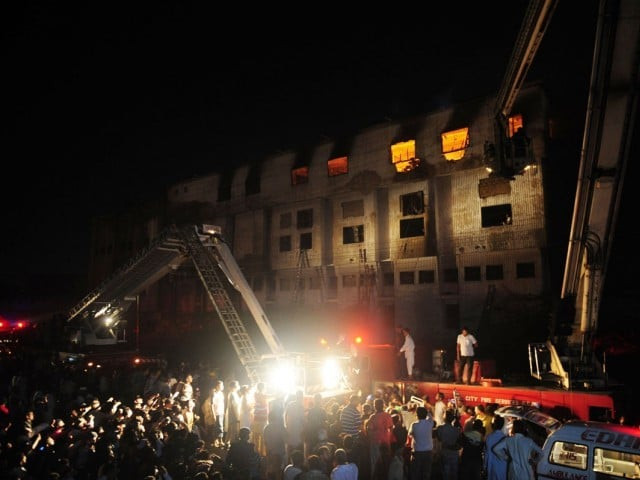Bleak working conditions: ‘Industrial tragedies likely to keep occurring’
Conference stresses need for occupational health and safety laws, implementation.

Trade unionists, social activists and lawyers expressed their concerns about the lack of action taken to redress the dangerous conditions of the country’s factory on Saturday, the second day of the three-day Sindh Labour Conference organised by Pakistan Institute of Labour Education and Research (Piler) at their office in Gulshan-e-Maymar.

“In the Baldia tragedy, it was not the fire that killed the workers but the actions and inaction of the people in charge of their safety,” said lawyer Faisal Siddiqui, comparing the incident to New York’s Triangle Shirtwaist factory fire that occurred in 1911 and claimed 146 lives. He said that both incidents happened in similar circumstances, with the owners of both the factories giving nearly the same statements about the closure of factory doors at the time of the fires, trapping workers inside.
“People died here because the building was constructed in violation of by-laws,” he said. “It was not even registered with the labour department, so the department did not bother to inspect it.”
Siddiqui highlighted the need for enforcing laws that deal with labourers, calling for pressure from international buyers to ensure the implementation of health and safety regulations. “Even if just Section 35 of the decades-old Factories Act of 1934 is implemented, many incidents can be avoided,” he asserted.
Security consultant Naeem Sadiq said that 98 per cent of the factories had no health and safety system in place, with their workers having no choice but to risk their lives every day. “People do not go to work to get injured,” he said, stressing the necessity for preventive measures for occupational health and safety. “Incidents like this happen every day in Pakistan, people die while working every day, and the reason for this is the absence of legislation for occupational health and safety standards in the country; we still rely on the 1934 Factories Act, which does not have any such standards.”
Economist Dr Kaiser Bengali said that the same land reforms could not work in every region of the country, because landownership follows different patterns in different regions; instead, each province should have separate land reforms, he suggested. “In Sindh and Naseerabad, Balochistan, there is traditional agribusiness, where the feudal lords exploit the tenants,” he explained, showing data from a survey of various districts of Pakistan. “Meanwhile, South Punjab has corporate farming where the peasants do not live on the landlord’s farms, and Khyber-Pakhtunkhwa mostly has small landowners, possessing one or two acres of land.”
Dr Bengali went on to assert that the landlords with large holdings had no interest in development. He further called for an end to tenancy in the agricultural sector. “Tenancy and sharecropping create dependency, leaving peasants socially and politically dependent on landlords,” he said. “Removing tenancy will eliminate this relationship, giving them freedom to work and vote as they please.”
Published in The Express Tribune, September 29th, 2014.



















COMMENTS
Comments are moderated and generally will be posted if they are on-topic and not abusive.
For more information, please see our Comments FAQ